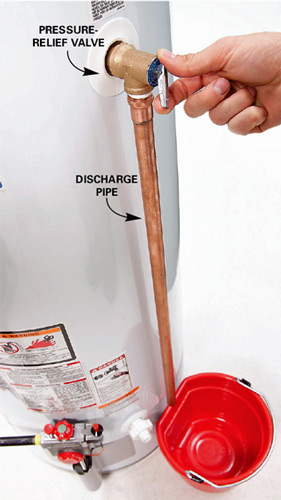Dealing with the Frequently Encountered Water Heater Emergencies
Dealing with the Frequently Encountered Water Heater Emergencies
Blog Article
This post listed below about The Importance of Water Heater Maintenance is indeed motivating. You should check this stuff out.
A hot water heater is one of one of the most crucial fundamental home appliances that can be found in a house. With hot water heater, you don't require to go through the stress of home heating water by hand every single time there is a requirement to wash, wash, or the dishes. There is constantly an opportunity that your water heating unit would certainly act up as with many mechanical devices.
It is necessary to keep in mind any type of little malfunction and tackle it swiftly prior to points get out of hand. The majority of times, your water heater begins to malfunction when there is a build-up of sediments as a result of continual use. As a safety measure, periodic flushing of your hot water heater is suggested to avoid debris build-up and also protect against practical failure.
Usual water heater emergency situations and exactly how to manage them
Dripping hot water heater container.
A leaking container could be an indication of deterioration. It could trigger damages to the flooring, wall and also electric gadgets around it. You might even be at danger of having your home swamped. In this scenario, you need to switch off your water heater, allow it to cool down, and thoroughly seek the resource of the problem. At times, all you require to do is to tighten a few screws or pipe connections in cases of minor leaks. However if this doesn't work as well as the leak persists, you may need to utilize the solutions of a specialist for an ideal substitute.
Varying water temperature level.
Your water heating unit could start creating water of various temperatures generally ice cool or scalding hot. There might be a requirement to change either the home heating or the thermostat system of your water heating unit.
Too little hot water
It might be that the water heating unit can not support the warm water demand for your home. You could update your water heating system to one with a bigger capacity.
Stained or stinky water
When this occurs, you need to know if the issue is from the storage tank or the water source. If there is no amusing scent when you run chilly water, then you are particular that it is your water heating unit that is malfunctioning. The odiferous water can be caused by rust or the build-up of germs or sediments in the water heating unit tank.
Verdict
Some homeowners overlook little caution and minor faults in their water heater device. This just leads to further damages and a feasible total breakdown of your device. You should deal with your water heater mistakes as quickly as they come near stay clear of even more expenditures as well as unnecessary emergency difficulties.
With water heating systems, you don't need to go through the tension of heating water by hand every time there is a requirement to take a bathroom, do the washing, or the dishes. Your water heater could start generating water of various temperature levels typically ice cold or hot warm. It may be that the water heating system can't sustain the warm water need for your home. If there is no amusing smell when you run cold water, after that you are specific that it is your water heating system that is damaged. The stinky water can be triggered by rust or the accumulation of bacteria or debris in the water heating unit storage tank.
Common Water Heater Issues and What You Should Do
What Type of Water Heater Do You Have?
Before we begin it’s first important that you identify the type of water heater you have on your property. There are two main types of water heaters out there: conventional and high efficiency.
Both of these types of products typically use either gas or electricity to heat power. There are also solar water heaters that use a thermal collector on the roof or yard to heat the water.
While these models are not as common, they can cut heating costs in half. In this article, we will focus on conventional and high efficiency.
How Do My Electric and Gas Water Heater Work?
Though they look similar, electric and gas water heaters work very differently. It’s important to know their basic function because often problems can be specific to the heating source.
In the electric model, a thermostat on the side of the machine detects the temperature of the water in the tank. When the temperature needs to rise electricity flows to a heating element suspended in the water.
Gas models also use a thermostat device — typically with a mercury sensor at the tip and an additional sensor called a thermocouple. The thermocouple detects whether the pilot light is on and controls the flow of gas.
When the thermostat drops below the appropriate level gas is released which becomes ignited by the pilot light. The flame heats the bottom of the water tank which causes hot water to rise and cold water to drop.
This natural circulation continues until the water reaches the desired temperature. Then, the thermostat triggers the gas control valve to shut off the flow of gas.
What Are the Most Common Issues and How Do You Fix Them?
https://happyhiller.com/blog/common-water-heater-issues-and-what-you-should-do/

As an enthusiastic reader on Common Hot Water Heater Problems, I figured sharing that piece of content was a good idea. Remember to set aside a second to share this blog if you enjoyed it. I value reading our article about Is Your Water Heater Leaking?.
Immediate relief? Contact. Report this page